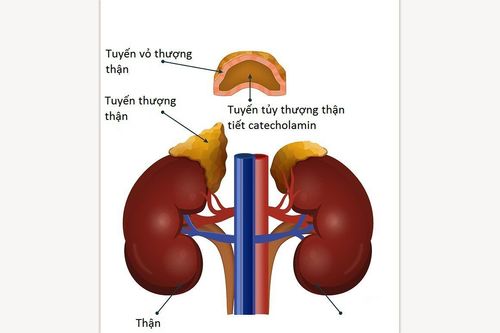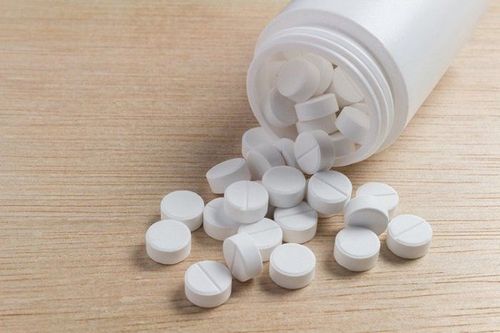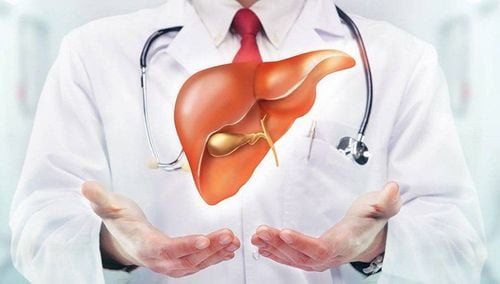This is an automatically translated article.
Aldosterone is a salt-water-metabolizing corticosteroid secreted by the adrenal cortex that regulates blood pressure. Aldosteron blood test is important in the diagnosis of many diseases related to the liver and kidneys.
1. What is a blood test for aldosterone?
In the body, the renin - angiotensin - aldosterone system controls the release of aldosterone. Decreased extracellular fluid volume causes decreased blood flow to the kidneys and this condition stimulates the kidneys to produce and excrete renin. Renin acts on angiotensinogen to form angiotensin I, which, in the presence of angiotensin-covering enzyme (ACE), is converted to angiotensin II. Angiotensin II stimulates the adrenal cortex to increase the production of aldosterone.
In the body's metabolism, Aldosterone participates in the control of sodium and potassium. Aldosterone exerts effects in the distal tubules, where it causes increased sodium and chloride reabsorption and increased excretion of potassium and hydrogen ions.
Blood aldosterone testing is performed on both plasma and urine samples. The information obtained is helpful in the diagnosis of primary hyperaldosteronism (caused by an abnormal condition of the adrenal cortex) and secondary hyperaldosteronism (a condition caused by overstimulation of the adrenal cortex by certain factors. caused by substances such as angiotensin or ACTH).
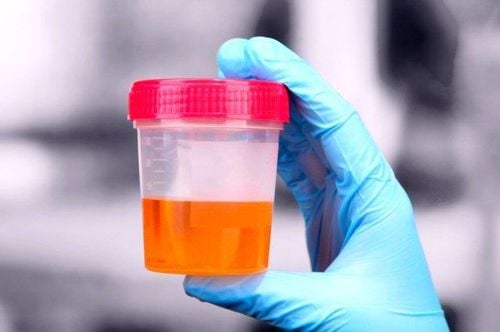
Xét nghiệm aldosteron trong máu thực hiện trên mẫu nước tiểu
2. When to test for aldosterone in the blood?
Your doctor will order you to test for aldosterone in the blood in the following cases:
To diagnose primary or secondary hyperaldosteronism; To assess adrenal aldosterone production; For differential diagnosis of water and electrolyte disorders; Disorders of water and electrolytes in the body; Young people with high blood pressure; Orthostatic hypotension (meaning low blood pressure when you stand up); Excessive production of aldosterone; There are symptoms of decreased adrenal gland activity.
3. Clinical significance of Aldosteron index
Clinical significance Aldosteron index will reflect the health status of liver, kidney and a number of other related diseases, specifically:Normal value:
Plasma (standing position): 4 -31 ng/ dL or 111 – 860 pmol/L Plasma (sitting position): < 16 ng/dL or < 444 pmol/L Urine excretion: 6 – 25 μg/day or 17 – 69 nmol/day. Plasma (sitting position / 8 - 10 am): 4 - 31 ng/dL or 111 - 860 pmol/L. Plasma (lying position/ 8 to 1 am): < 16 ng/dL or < 444 pmol/L. Plasma (sitting position / 4 - 6 pm): 2 - 23 ng/dL or 55.48-638.02 pmol/L. Urinary excretion: 6-25 ́g/day or 17-69 nmol/day.
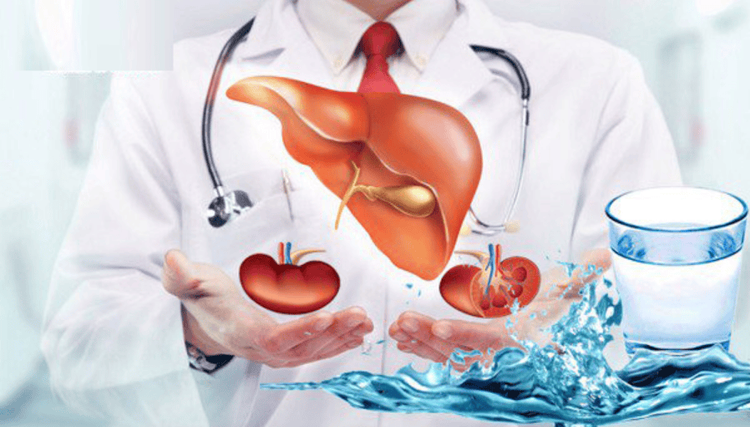
Chỉ số Aldosteron phản ánh tình trạng của gan, thận
Aldosteron levels in the blood can increase due to some of the following reasons:
Adrenal cortex hyperplasia; Aldosterone-producing adenoma (aldosterone-producing adenoma); Cirrhosis ascites ; Congestive heart failure; Bleed; Hyperkalemia; Hyponatremia; Decreased blood volume; Low sodium diet; Malignant hypertension; Nephrotic syndrome; Pregnant; Primary hyperaldosteronism (Conn's syndrome); Stress status.
If the level of Aldosterone in the blood drops, it can be a sign of some problems such as:
Addison's disease or primary adrenal insufficiency; High sodium diet; Hypernatremia; Decreased blood potassium; Salt loss syndrome; Sepsis; Pregnancy toxicity.
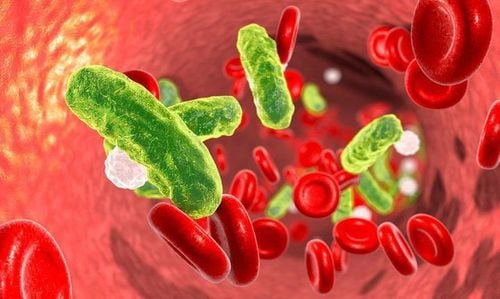
Nồng độ Aldosteron trong máu giảm có thể là do nhiễm trùng huyết
4. Benefits of Quantitative Aldosteron Test
The benefits of quantitative testing for aldosteronism include:
Basic test that allows the diagnosis of hyperaldosteronism: when plasma aldosteronism is > 100ng/dL, hyperaldosteronism is confirmed. Combined with the determination of plasma renin activity, the test allows to determine whether this hyperaldosteronism is primary or secondary: primary hyperaldosteronism causes increased plasma aldosteronism and low plasma renin activity.
5. Notes when performing a blood test for aldosterone
Although it is not a rigorous testing technique, the results can be affected by a few things, so you need to be aware:
Test results can be changed due to diet, physical activity, drink licorice and due to the patient's posture. Drugs that can increase blood aldosterone levels are: Corticotropin, diazoxide, diuretics, hydralazine hydrochloride, sodium nitroprusside, oral contraceptives, oral potassium. Drugs that can reduce aldosterone levels are: Fludrocortisone acetate, methyl dopa, non-steroidal anti-inflammatory drugs, propranolol, steroids. Quantitative testing of Aldosterone levels in the blood is very important in diagnosing diseases related to the liver, kidneys, blood pressure. Therefore, to get the most accurate and fastest results, to support the effective treatment process, you should test at reputable medical centers.
Vinmec International General Hospital has a team of experienced and highly qualified medical doctors, providing accurate diagnoses. Modern equipment helps patients get the fastest test results, with high accuracy. This helps in no small part to the treatment process. For more information, you can contact the nationwide Vinmec Health System Hotline, or register for an online examination HERE.





